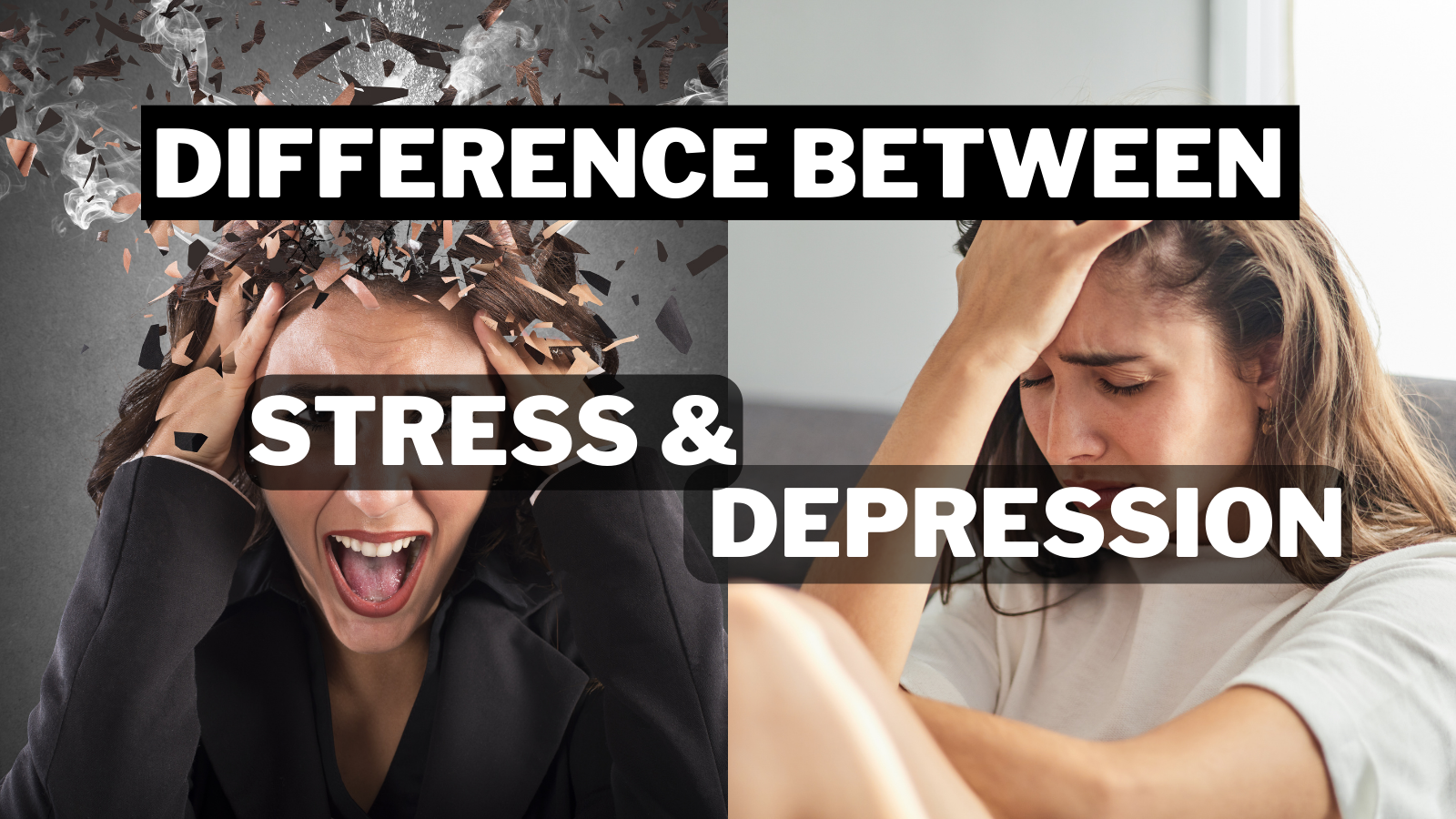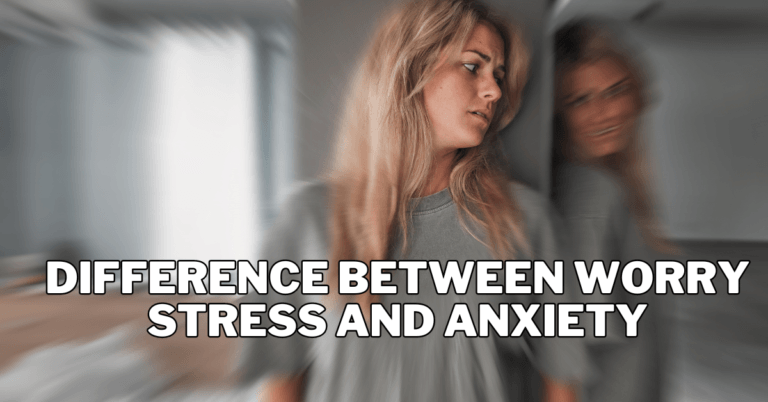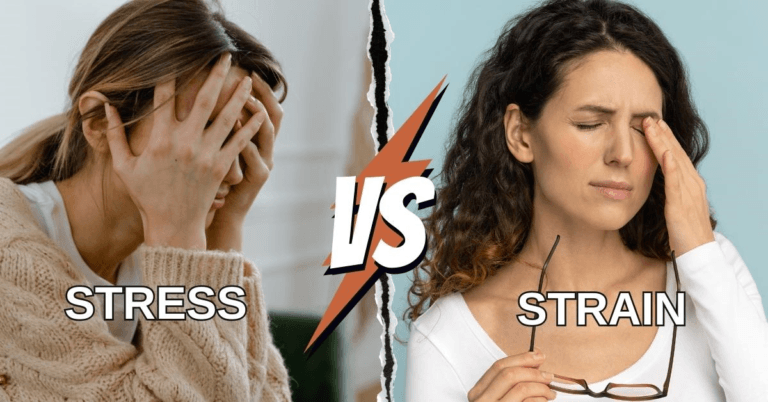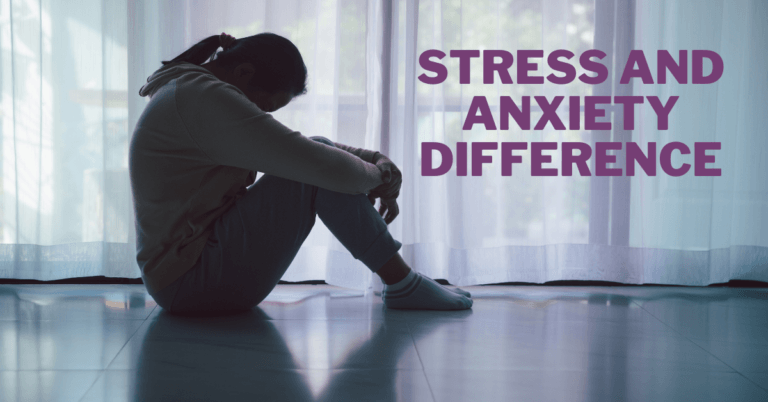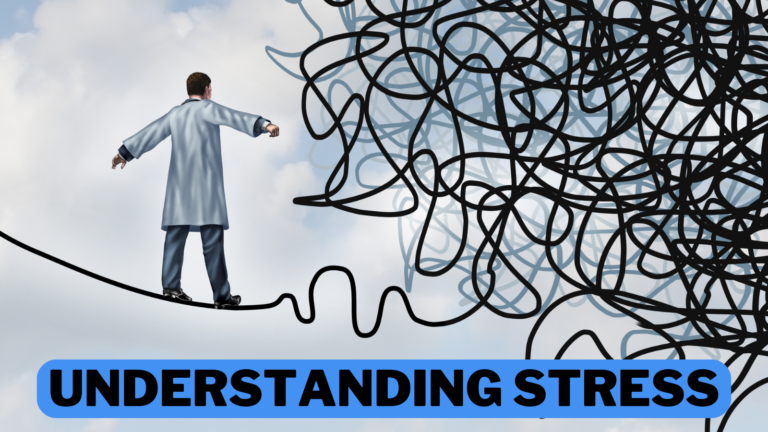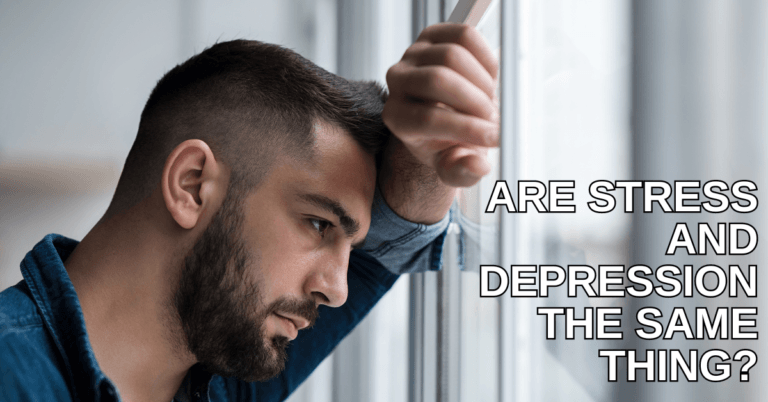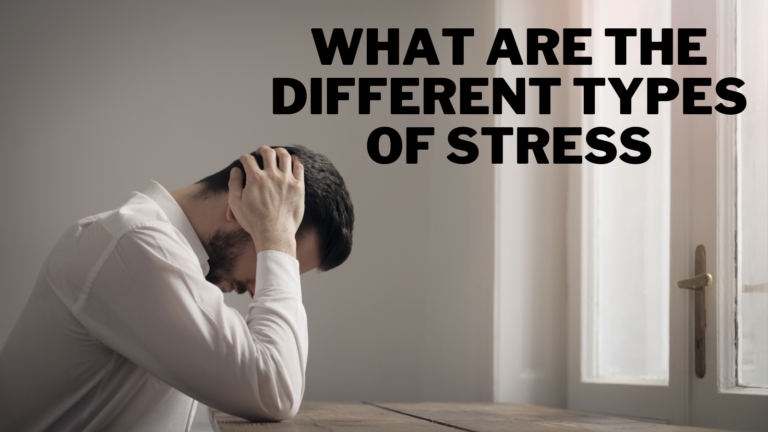What Is The Difference Between Stress And Depression
What Is The Difference Between Stress And Depression
Stress and depression are two common mental health conditions affecting an individual's emotional and physical well-being.
Stress is a normal response to challenging situations, such as work or relationship problems, and can be managed through healthy coping mechanisms.
Depression, on the other hand, is a mood disorder characterized by persistent feelings of sadness and hopelessness, requiring professional treatment.
Understanding stress and depression is important for identifying and addressing mental health concerns.
This blog post will explore the difference between stress and depression, their causes, symptoms, and treatment options.
By understanding these conditions more deeply, individuals can take the necessary steps to improve their mental health and overall well-being.
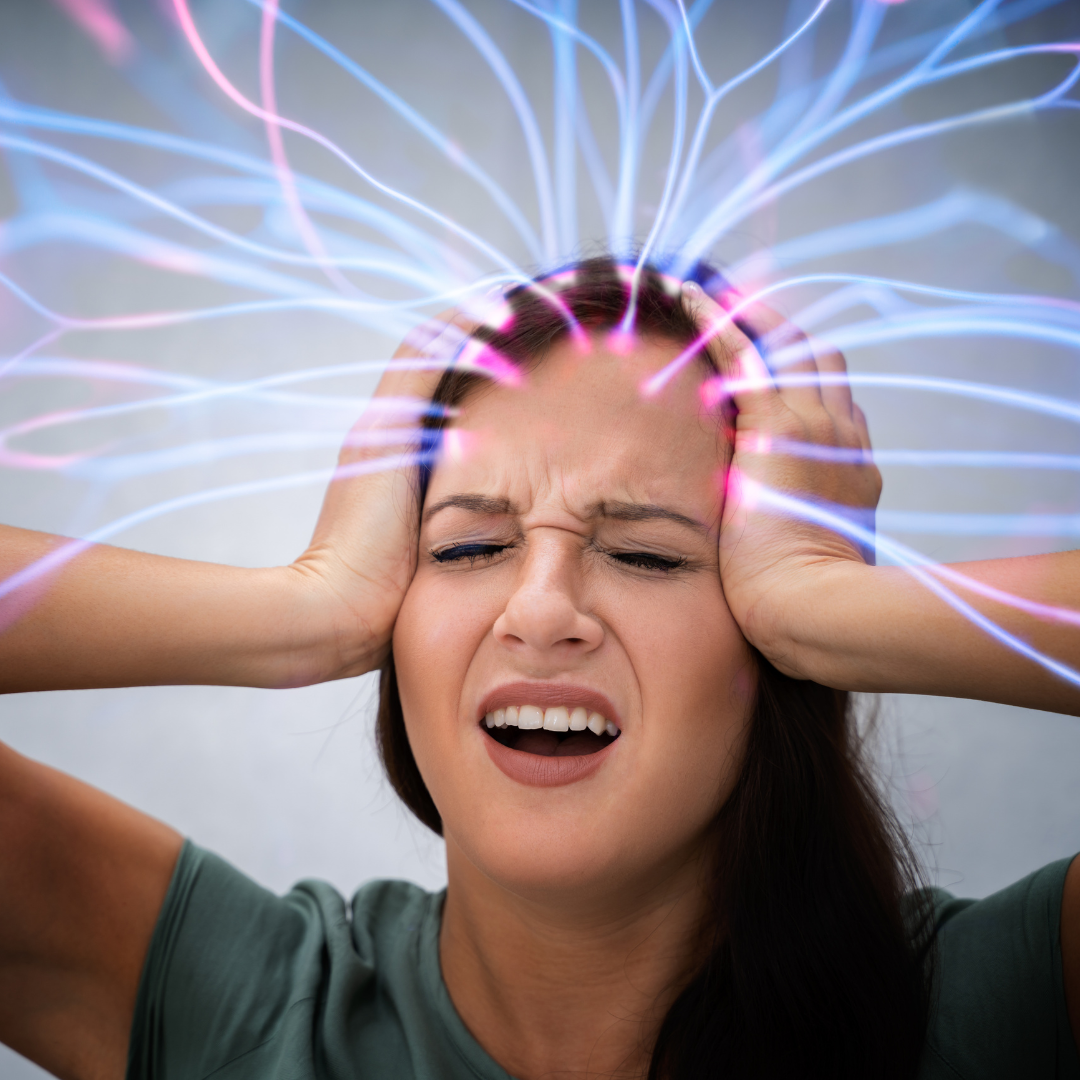
What Is Stress?
Stress is a natural response to challenging situations. It is a normal part of the body's physiological response to environmental changes.
It can be caused by various factors such as work, relationships, financial problems, or major life events.
When we perceive a threat or challenge, our body activates a “fight or flight” response, releasing hormones such as adrenaline and cortisol that help us respond to the situation.
This response is designed to help us survive in dangerous situations but can also be activated in response to everyday stressors.
Stress can manifest in a variety of physical and emotional symptoms. Physical symptoms of stress can include headaches, muscle tension, fatigue, and changes in appetite or sleep patterns.
Emotional symptoms can include anxiety, irritability, and difficulty concentrating. Stress can also lead to feelings of depression and hopelessness.

What Is Depression?
Depression is a mental health disorder characterized by persistent sadness, hopelessness, and a lack of interest in activities.
It can also cause physical symptoms such as changes in appetite and sleep patterns and difficulty concentrating and making decisions.
Depression is not a normal response to life's challenges and cannot be easily “snapped out of.” It's a serious condition affecting millions worldwide and can significantly impact an individual's well-being.
Symptoms of depression can vary from person to person, ranging from mild to severe.
Some common symptoms of depression include:
- Feelings of hopelessness
- Sadness or emptiness
- Loss of interest in activities that were once enjoyed
- Changes in appetite or sleep patterns
- Difficulty concentrating
- Feelings of worthlessness or guilt
- Thoughts of suicide
Depression can be caused by genetic, biological, environmental, and psychological factors. It's important to note that depression is a treatable condition.
Therapy, yoga and meditation can help individuals manage their symptoms and improve their quality of life.

What Is The Difference Between Stress And Depression?
Stress and depression are two common mental health conditions that can significantly impact an individual's well-being.
While they may share some similarities, they are distinct conditions with unusual symptoms and causes.
Some differences between stress and depression are:
Causes
Stress is often caused by external factors such as work, relationships, or financial problems.
Depression, on the other hand, is caused by a combination of genetic, biological, environmental, and psychological factors.
Symptoms
It is important to note that stress and depression can overlap and have similarities, but depression tends to have more persistent and severe symptoms.
For example, stress may cause anxiety or irritability, but these feelings are typically temporary and resolve once the stressor is removed.
In contrast, depression can cause feelings of sadness, hopelessness, or worthlessness that last for weeks or months and may not be directly linked to a specific stressor.
Additionally, depression can lead to thoughts of death or suicide, which are not typically associated with stress.
Duration
Stress is often a short-term response to a specific stressor, whereas depression is a longer-term condition lasting for weeks or months.
It is important to note that the duration of stress and depression can vary from person to person and depend on the severity of the condition and the type of support and treatment received.
Stress can be managed through lifestyle changes, stress-management techniques, and seeking support.
Depression, however, often requires professional help such as therapy or medication and may take longer to treat.
Identifying the symptoms early is important, and obtaining professional support to manage them properly is crucial.
Treatment
It's important to note that the cure for stress and depression may vary depending on the individual and the severity of their condition.
Stress can be managed through relaxation, exercise, and time management techniques.
Depression, however, may require a more comprehensive approach, such as talk therapy, medication, and lifestyle changes, such as diet and exercise.
Working with a mental health professional is important to determine the best course of treatment for you.
Diagnosis
Diagnosis for stress is often based on self-reported symptoms and a person's ability to identify a specific stressor.
Depression, on the other hand, is diagnosed by a healthcare professional through a comprehensive evaluation that includes a detailed assessment of symptoms, a medical history, and possibly laboratory tests to rule out other potential causes of the symptoms.
A healthcare professional may also use standardized diagnostic tools such as the Diagnostic and Statistical Manual of Mental Disorders (DSM-5) or the International Classification of Diseases (ICD-10) to diagnose depression.
Impact On Daily Life
Stress can affect a person's everyday life and may cause them to feel overwhelmed or anxious, but it does not typically interfere with their ability to function.
Depression, however, can greatly impact a person's daily life and make it difficult to work, socialize, or care for themselves.
This can lead to absenteeism from work or school, difficulty maintaining relationships, and difficulty performing daily tasks such as eating and personal hygiene.
In severe cases, depression can lead to disability and hospitalization. It is important for anyone experiencing symptoms of depression to seek professional help.
It's important to note that both stress and depression can be serious conditions that can have a significant impact on a person's life.
If you are experiencing symptoms of stress or depression, it's important to seek professional help.
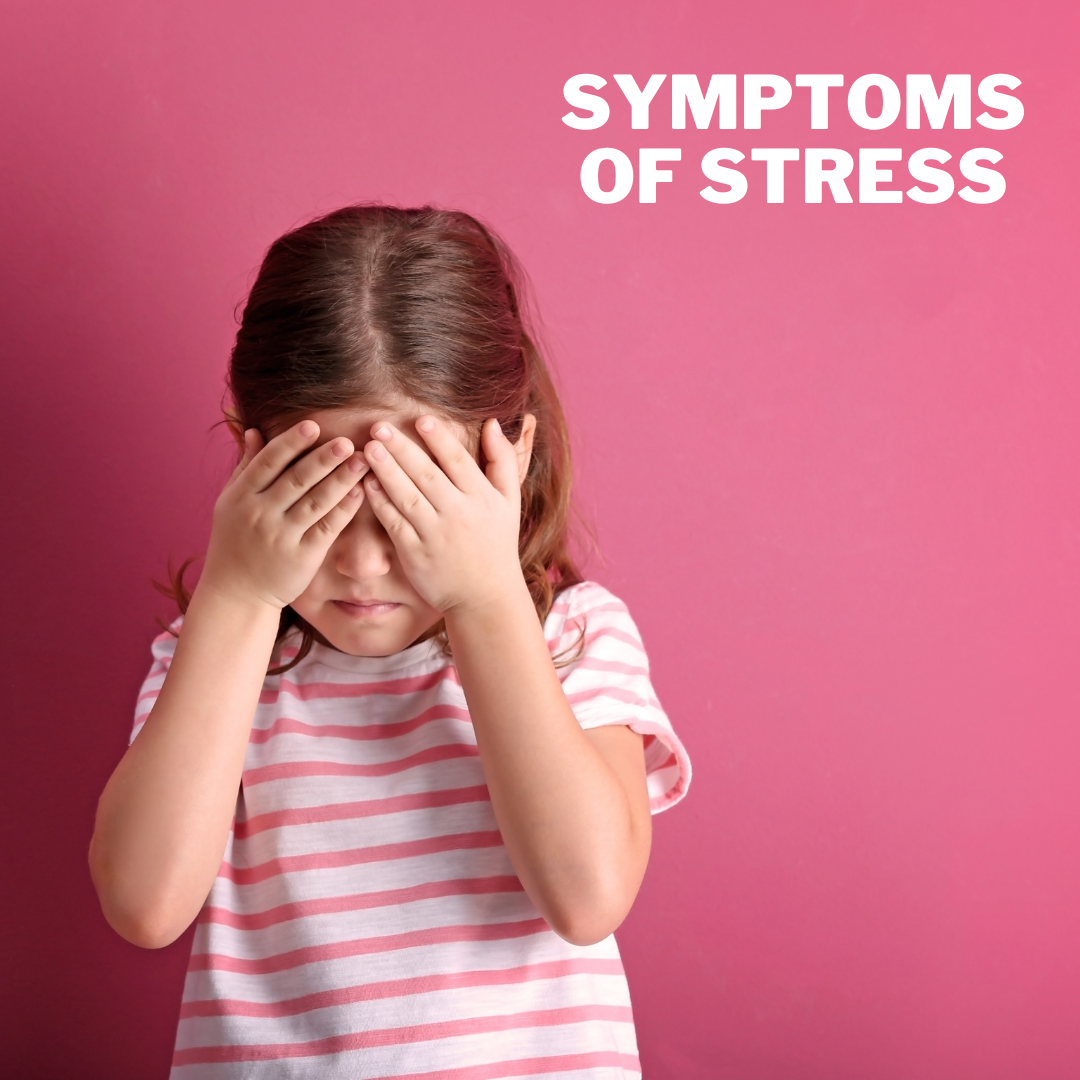
Symptoms Of Stress
Stress is a natural response to challenging situations and can manifest in physical, emotional, behavioural, and cognitive symptoms.
1. Physical Symptoms
Stress can cause a wide range of physical symptoms in the body. The most common physical symptoms of stress include muscle tension, headaches, fatigue, and changes in appetite or sleep patterns.
Stress activates the body's “fight or flight” response, which can cause muscles to tense up and lead to feelings of tightness or discomfort in the neck, shoulders, back or other areas of the body.
This can also lead to muscle pain or spasms, chronic muscle pain and tension headaches. Stress can cause tension headaches, migraines, and sinus headaches.
It can also exacerbate pre-existing headache conditions. Stress can cause a person to feel fatigued, making it difficult to complete daily tasks or maintain energy levels.
Stress can also cause insomnia or difficulty falling asleep, leading to disturbed sleep patterns, which can cause fatigue.
Stress can cause changes in appetite, leading to overeating or loss of appetite and stomach upset, nausea, or indigestion.
If you experience any physical symptoms, it's important to take care of your physical and mental health and consider seeking help from a healthcare professional if it persists.
2. Emotional Symptoms
Emotional symptoms of stress include feelings of anxiety, irritability, and depression. Anxiety is a common emotional symptom of stress.
It can manifest as feelings of nervousness, worry, or fear. Stress can also cause or worsen pre-existing anxiety disorders.
Irritability is another emotional symptom of stress. Stress can cause a person to become easily frustrated, short-tempered, or easily angered.
Depression is also a common emotional symptom of stress. Stress can cause sadness, hopelessness, or loss of interest in activities. Stress can also worsen pre-existing depression.
3. Behavioural Symptoms
Behavioural symptoms of stress include changes in a person's normal behaviour, such as increased alcohol or drug use, changes in eating habits, or difficulty concentrating.
Increased alcohol or drug use can be a behavioural symptom of stress. When stressed, people may turn to alcohol or drugs to cope or relax. However, this can lead to addiction or other negative consequences.
Changes in eating habits can also be a behavioural symptom of stress. Stress can cause changes in appetite, leading to overeating or loss of appetite. Stress can also cause stomach upset, nausea, or indigestion.
Difficulty concentrating is a behavioural symptom of stress. Stress can cause a person to have difficulty focusing or be easily distracted, making it difficult to complete tasks or make decisions.
4. Cognitive Symptoms
Cognitive symptoms of stress include problems with memory and concentration.
Stress can affect memory, leading to forgetfulness or difficulty recalling specific information. This can make it difficult to complete tasks that require short-term memory or to learn new information.
Concentration can also be affected by stress. Stress can cause a person to have difficulty focusing or be easily distracted, making it difficult to complete tasks or make decisions.
This can also affect the ability to learn new information or to multitask effectively. Stress can also cause feelings of confusion or disorientation.
5. Gastrointestinal Symptoms
Stress can affect the body's digestive system, leading to symptoms such as stomachaches, nausea, constipation, or diarrhea.
These symptoms can be caused by the body's “fight or flight” response, which can cause muscles in the digestive tract to tense up, leading to stomach discomfort or pain.
Stress can also cause changes in appetite, leading to overeating or loss of appetite, contributing to stomach discomfort. Stress can also cause stomach upset, nausea, or indigestion.
Stress can also cause muscle tension in the intestines and colon, leading to constipation or diarrhea.
These symptoms can be caused by the body's “fight or flight” response, which can cause muscles in the digestive tract to tense up, leading to stomach discomfort or pain.
Stress can also cause changes in appetite, leading to overeating or loss of appetite, contributing to stomach discomfort. Stress can also cause stomach upset, nausea, or indigestion.
Stress can also cause muscle tension in the intestines and colon, leading to constipation or diarrhea.
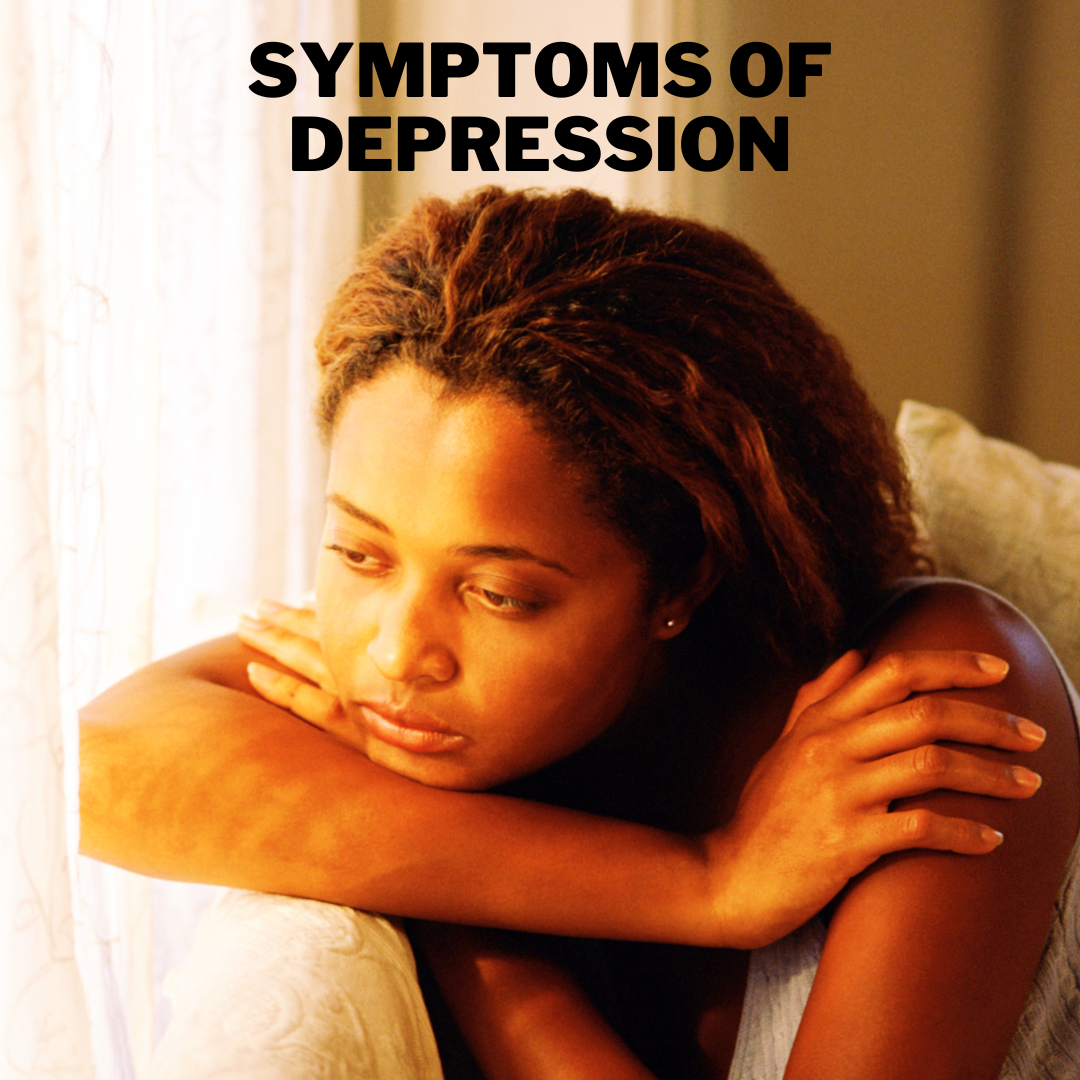
Symptoms Of Depression
Depression is a mental health disease that makes it difficult to do daily tasks. Sadness and a loss of interest in once-enjoyable activities are their defining characteristics.
Once a person has a gloomy mood and most of the following symptoms for at least two weeks, they are often diagnosed with depression.
1. Changes In Mood
Mood changes are one of the most common symptoms of depression. Individuals with depression may experience feelings of sadness, hopelessness, or worthlessness.
They may also have difficulty experiencing pleasure or have a lack of motivation. These feelings can be constant or may come and go, ranging from mild to severe.
2. Changes In Behaviour
Depression is a serious mental health condition that affects millions of people worldwide. Changes in mood, behaviour, and cognitive function characterize it.
Some of the most common symptoms of depression include sadness, hopelessness, worthlessness, and a lack of motivation.
Individuals with depression may also withdraw from friends and family, lose interest in activities they once enjoyed, and have difficulty completing daily tasks.
They may also have difficulty finding pleasure in things they once loved, making decisions, remembering, or concentrating.
If you or someone you know is experiencing these symptoms, it is important to seek professional help. Early intervention can help improve the outcome of depression and increase the chances of recovery.
It's important to note that depression is a treatable condition, and therapy and medication can help individuals manage their symptoms and improve their quality of life.
3. Changes In Physical Health
Depression may cause changes in physical health, such as changes in appetite and sleep patterns, fatigue, and muscle aches and pains can all be symptoms of depression.
These symptoms can manifest in various ways and vary from person to person. Some individuals may experience changes in their appetite, leading to weight loss or gain, and may lose interest in food or have difficulty finding pleasure in eating.
Others may experience changes in their sleep patterns, such as insomnia or difficulty falling asleep, leading to disturbed sleep patterns, excessive sleeping or difficulty waking up in the morning.
Additionally, depression can cause feelings of fatigue and low energy throughout the day, making it difficult to complete daily tasks or maintain motivation.
Furthermore, depression can also cause muscle aches and pains, which can be caused by muscle tension or decreased physical activity.
These symptoms can also include headaches, back pain, or general muscle soreness, which can contribute to feelings of fatigue and discomfort.
4. Cognitive Symptoms
Individuals with depression may have difficulty focusing, remembering details, or making decisions.
They may also experience negative thoughts or rumination and difficulty finding motivation or meaning in their daily activities.
These symptoms can affect a person's ability to perform at work or school and make it difficult to complete simple tasks.
5. Thoughts Of Death Or Suicide
Individuals with depression may have persistent thoughts of death or suicide and may make plans or attempt suicide.
It is important to take these thoughts seriously and seek professional help immediately, as depression is a treatable condition. Still, it can become severe without treatment and lead to tragic consequences.
If you or someone you know is experiencing thoughts of suicide, it is important to reach out for help from a mental health professional, a trusted friend or family member, or a crisis helpline as soon as possible.
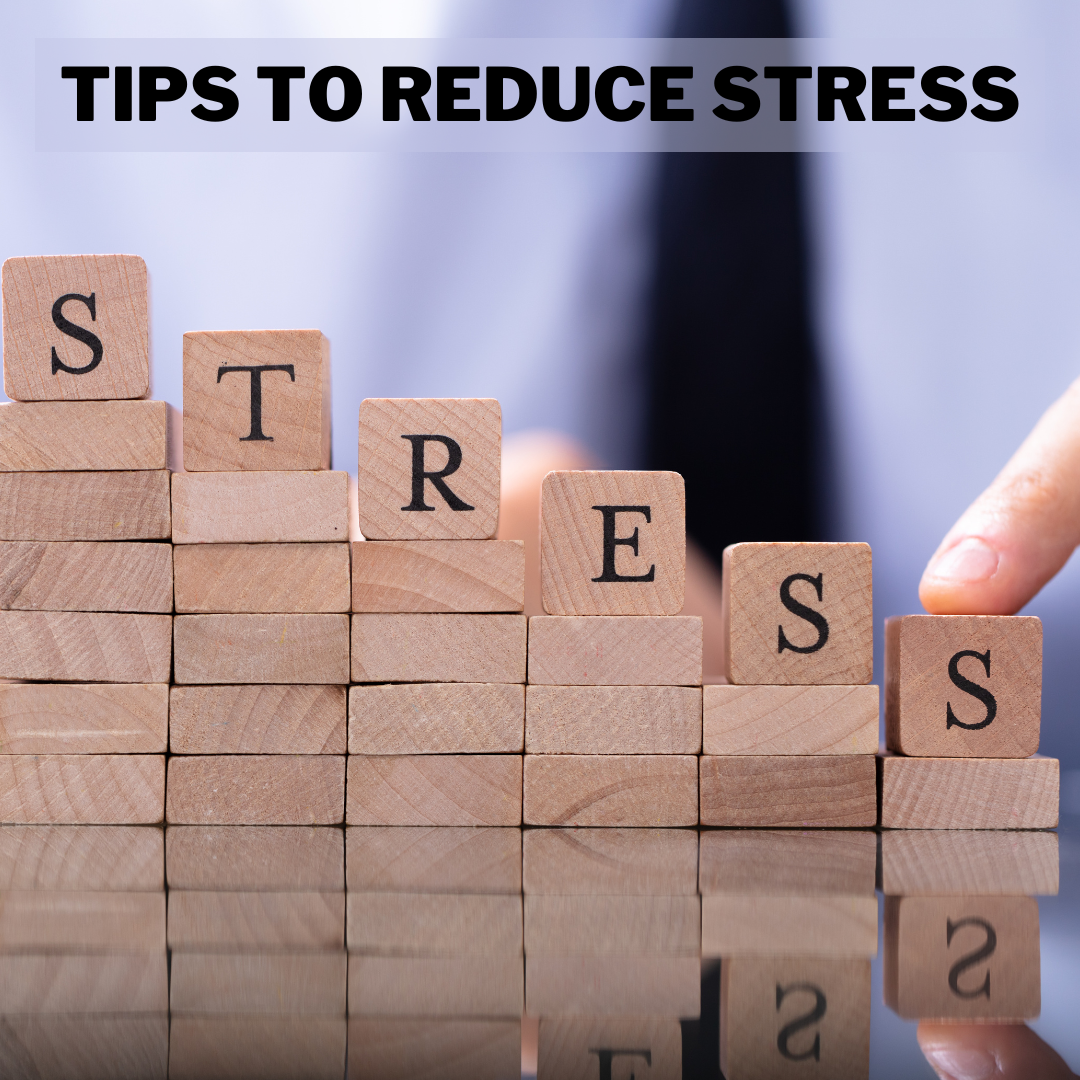
Tips To Reduce The Stress
1. Exercise Regularly
Physical activity can help reduce symptoms of stress and improve overall mood.
2. Eat A Healthy Diet
Eating a diet rich in fruits, vegetables, and whole grains can help reduce stress and improve overall health.
3. Get Enough Sleep
Adequate sleep is important for physical and mental health, and lack of sleep can contribute to stress.
4. Practice Relaxation Techniques
Relaxation techniques such as yoga, meditation, and deep breathing can help reduce stress and improve overall well-being.
Stay organized: Being organized can help reduce stress by making it easier to manage tasks and responsibilities.
5. Talk To A Therapist Or Counsellor
A mental health professional can help you work through stressors and develop coping strategies.
6. Take Time For Yourself
Make sure to take time to relax and engage in activities you enjoy.
7. Limit Alcohol And Caffeine Intake
Consuming too much alcohol and caffeine can increase feelings of stress and anxiety.
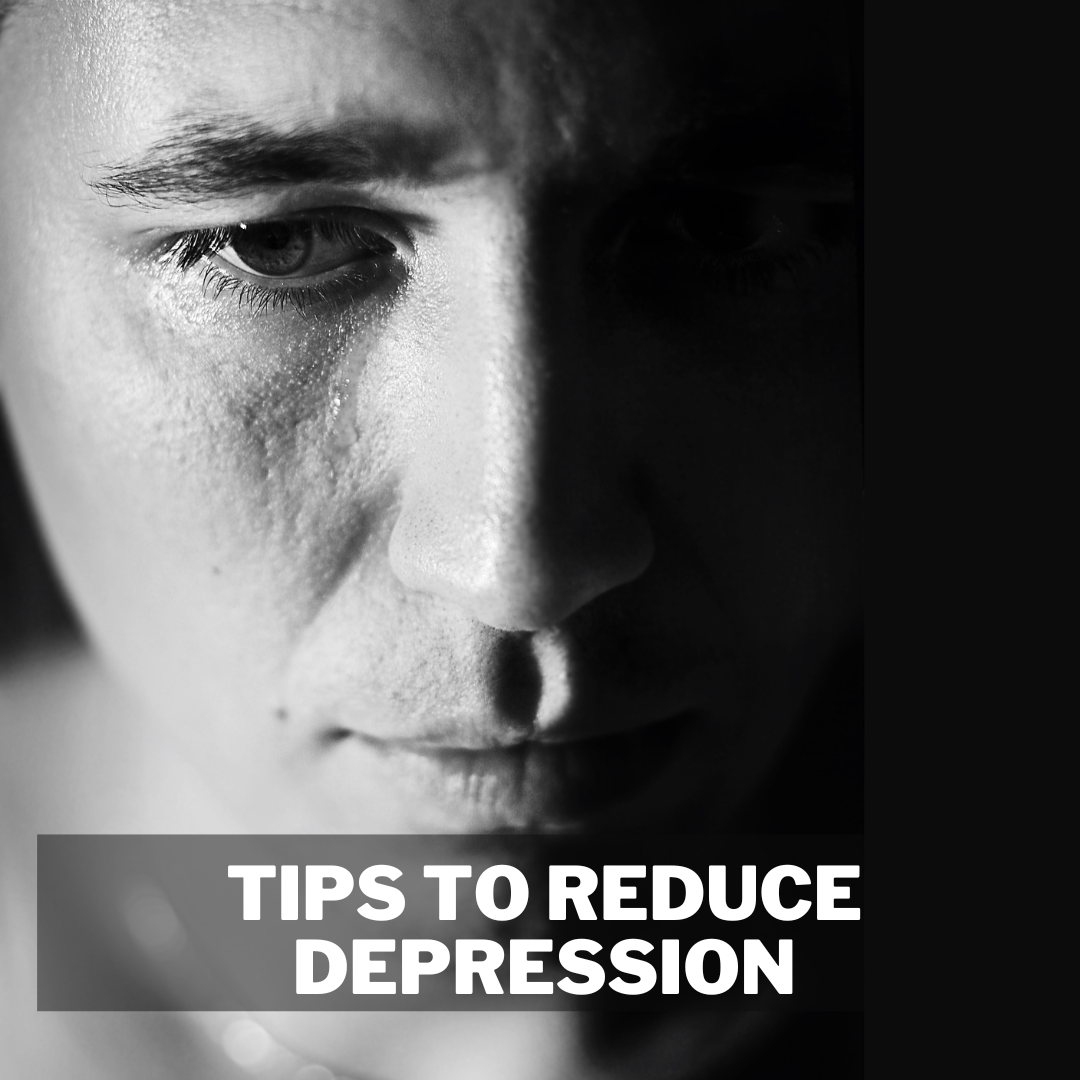
Tips To Reduce Depression
1. Exercise Regularly
Physical activity can help reduce symptoms of depression and improve overall mood.
2. Practice Mindfulness
Mindfulness techniques such as meditation and yoga can help improve mental well-being and reduce feelings of depression.
3. Connect With Others
Socializing with friends and family can help reduce feelings of isolation and loneliness.
4. Get Enough Sleep
A lack of sleep can worsen symptoms of depression, so it is important to establish a regular sleep routine.
5. Seek Professional Help
If symptoms of depression persist, it is important to seek help from a mental health professional. This can include therapy, medication, or a combination of both.
6. Set Realistic Goals
Set realistic goals for yourself and small, manageable tasks you can accomplish daily.
7. Practice Gratitude
Reflect on what you are thankful for and try to appreciate the good things in your life.
8. Volunteer
Helping others can help boost your mood and reduce feelings of depression.
9. Practice Self-Care
Ensure you care for your physical and emotional needs by eating well, getting enough sleep, and avoiding alcohol and drugs.
10. Be Kind To Yourself
Be gentle with yourself and try not to beat yourself up if you experience setbacks or relapses. Remember that depression is an illness, and you deserve compassion and understanding.

Conclusion
Several signs and symptoms can indicate if a worker is under stress. Some visible signs include difficulty sleeping, difficulty focusing, or loss of appetite.
Internally, those stressed out may feel agitated, irritable, or low on themselves. Other bodily signs include headaches, muscle soreness, and dizziness.
Similar warning signs for depression include loss of sex interest or appetite, physical aches and pains, and trouble sleeping.
When someone loses interest in pursuits that once brought them joy, such as hobbies or socializing, it is a classic indicator of depression.
It can be challenging to get through the day when you have depression. There may appear to be no other option at times.
However, some people assist us with stress and depression symptoms in reducing our symptoms so we can resume enjoying life.
I trust you enjoyed this article on the Difference Between Stress And Depression. Please stay tuned for more blog posts soon. Take care!
JeannetteZ
>>>Please click here to read my all-inclusive article about Lessons That Will Teach You All About Stress<<<
>>>Are you interested in Natural Healing And Stress Relief through Herbs? Please click here for my #1 Recommendation<<<
Your Opinion Is Important To Me
Thoughts? Ideas? Questions? I would love to hear from you. Please leave me your questions, experiences, and remarks about this article on the Difference Between Stress And Depression in the comments section below. You can also reach me by email at Jeannette@Close-To-Nature.org.
Disclosure
This post may contain affiliate links. I earn from qualifying purchases as an Amazon Associate and other affiliate programs. Please read my full affiliate disclosure.
You might also enjoy these blog posts:
Best Steps To Grow Verbena In Containers
Best Steps To Grow Cacao Plants In Containers
Best Steps To Grow Dandelions In Containers
Best Steps To Grow Chrysanthemums In Containers
Best Steps To Grow Statice In Containers

